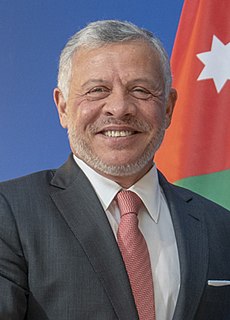A Quote by Alain Dehaze
I don't think that the ECB should compensate for the lack of reforms in some countries... But it is clear that monetary policy can help countries and continents to rebound faster.
Quote Topics
Related Quotes
The reality is that [Barack] Obama has some 15 countries in the current Libya coalition. President Bush put together close to 50 countries for the Afghan coalition, some 40 countries for the Iraqi coalition, more than 90 countries for the Proliferation Security Initiative and over 90 countries in the Global War on Terror.
I think this is really a defining moment for the Arab world. The problem is, it is all going to be about blood, sweat and tears. In certain countries it may be just sweat, and in some countries sweat and tears, and in some countries, as you can see, a lot of blood. I think initial instability is something that we are all extremely nervous of.
I do think that it's really important for leaders of countries to be very clear and careful in the statements they make because their words are weighed extremely carefully by other countries, and you have to create a continuity of seriousness and of credibility in order to be able to be taken seriously and get things done.


































